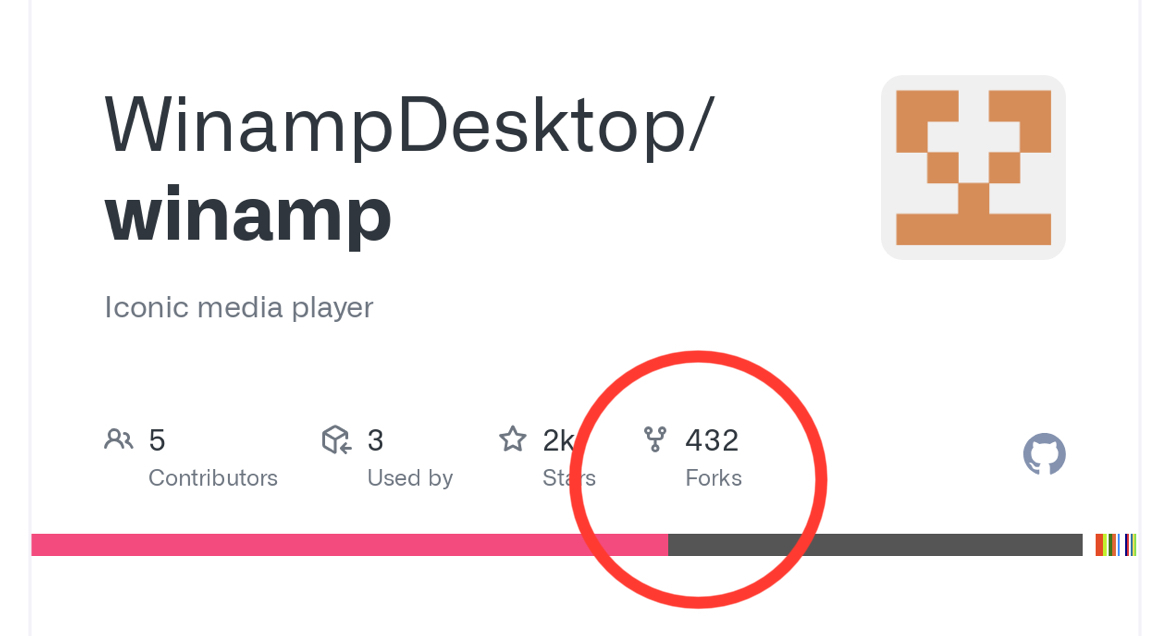- cross-posted to:
- [email protected]
- [email protected]
- [email protected]
- cross-posted to:
- [email protected]
- [email protected]
- [email protected]
They have the audacity to use the term copyleft for that bullshit license… It doesn’t mean anything unless you have the right to fork it.
The Winamp Collaborative License is a free, copyleft license for software and other kinds of works. It is designed to ensure that you have the freedom to use, Modify, and study the software, but with certain restrictions on the distribution of modifications to maintain the integrity and collaboration of the project.
Oh god…
No Distribution of Modified Versions: You may not distribute modified versions of the software, whether in source or binary form. No Forking: You may not create, maintain, or distribute a forked version of the software. Official Distribution: Only the maintainers of the official repository are allowed to distribute the software and its modifications.
Copy left is not a protected term but yeah this is a shit license.
And how the fuck do you contribute code back without forking the project?!
EDIT: It looks like an issue has already been created and I absolutely love this thread where the license they are using is in violation of Github TOS.
They should have just kept the source closed! The speculation is that whomever purchased it wants to crowdsource contributions without adding any value themselves.
People on Hacker News are speculating that they implicitly define forking as “taking the project in a different direction in an independent repo”. The Github TOS say that everyone has the right to create a fork of any public repo in the Github sense of the word. It’s all a huge mess…
It’s one of the reasons why I hate license proliferation. These custom licenses aren’t tested against case law so if they think you’re in violation you have to defend yourself.
The only way to give these assholes a run for their money is for people to start forking the project and ignoring any terms that are in violation of the GitHub TOS.
This was predicted back when they first announced it… what do you know, it was correct.
No Forking: You may not create, maintain, or distribute a forked version of the software.
 Lol 💀
Lol 💀I will hold on to the memories, thanks.
I recon I would use it if I actually played media from a local source. But alas I am a whore for the stream.
and let me guesa you only ever listen to the same 3 playlists you vould easily just download. that’s how it is for me at least
The community can make a better app than the piss poor job the new owners have attempted. Following this development
The community has been making Winamp clones for as long as Winamp has existed. XMMS appeared the same year as Winamp, in 1997. Audacious is still around and still has a mode where it uses Winamp skins.
The thing about Winamp is that it had its time in the spotlight for a few years and then everybody moved on to the new types of media libraries like foobar2000. Today it’s just a museum piece.
I’m curious, why does this require OpenSSL in order to compile? I’m not aware of any audio formats that use encryption, but I could be wrong.
My first thought was for connecting to https streams, but I don’t remember Winamp having this capability. “Back in the day,” I used Winamp for playing local audio and RealPlayer for what little streaming was available.
I don’t know about https specifically but winamp could handle all kinds of streams.
Looks like curl and opus want it https://github.com/search?q=repo%3AWinampDesktop%2Fwinamp+openssl+language%3AC&type=code
Three streaming (like pointed in the other comment) was my initial reaction too, but indeed at the time https for streaming would be very rare.
Another possibility is to realize that openssl isn’t just for communication, but also has implementation of cryptographic algorithms.
Perhaps openssl was used for validation of licensing key? For example they could sign the license with their private key and WinAmp could verify it’s authenticity with its public key.
Maybe to connect to their update servers and validate updated binaries or something like that? Not sure if it supported calling home to get updates.
Couldn’t you look at the code and see what ssl calls it’s making?
i remember listening to icecast radio on winamp back in the day
I’ll just mention QMMP which is basically a Winamp clone. Works great and I’ve used it for many years now.
deleted by creator






